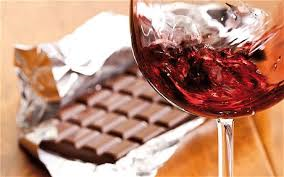
WIDESPREAD red wine and chocolate help you live longer and avoid heart disease and cancer are a myth, according to a nine year human study that found no such effect.
Resveratrol, a chemical found in grapes, chocolate and certain roots and berries, has been the alibi many use to justify their unhealthy indulgences after research found it increased the lifespan of mice.
However, a new US study of nearly 800 humans in the chianti red wine growing region of Tuscany, Italy, has shown there is no link between levels of resveratrol in people’s urine and whether they will live longer, get cancer or heart disease.
The study conducted by researchers at the Johns Hopkins School of Medicine in Baltimore, Maryland, followed 800 men and women aged over 65 for nine years and found the amount of resveratrol they got from a western diet had no substantial influence on their health.
“This study suggests that dietary resveratrol from Western diets in community dwelling older adults does not have a substantial influence on inflammation, cardiovascular disease, cancer or longevity,” the authors say.
The authors found a large variability in exposure to resveratrol in the population studied with higher urinary resveratrol levels associated with alcohol intake in their research published in the Journal of the American Medical Association.
COMMENT BELOW: What is your favourite myth?
They questioned whether a larger study might be needed to detect any association between the chemical and human health.
Several studies in mice had suggested resveratrol increased lifespan and it was thought to be the basis of the French paradox in which low incidence of heart disease in the high fat consuming French population was due to their red wine consumption.
Annual sales of resveratrol supplements in the United States have reached $30 million a year even though the evidence of the chemicals effect in humans is conflicting.
Australian scientist Professor David Sinclair, who has led research on resveratrol’s role in longevity, has said you’d need to consume 100 glasses of red wine a day to get the same amount of resveratrol given to mice in scientific studies.
The National Health and Medical Research Council says we should drink no more than two standard drinks a day to reduce the harm from alcohol, but this would give us just 2 per cent of the resveratrol used in animal studies.
Source: Herald Sun
